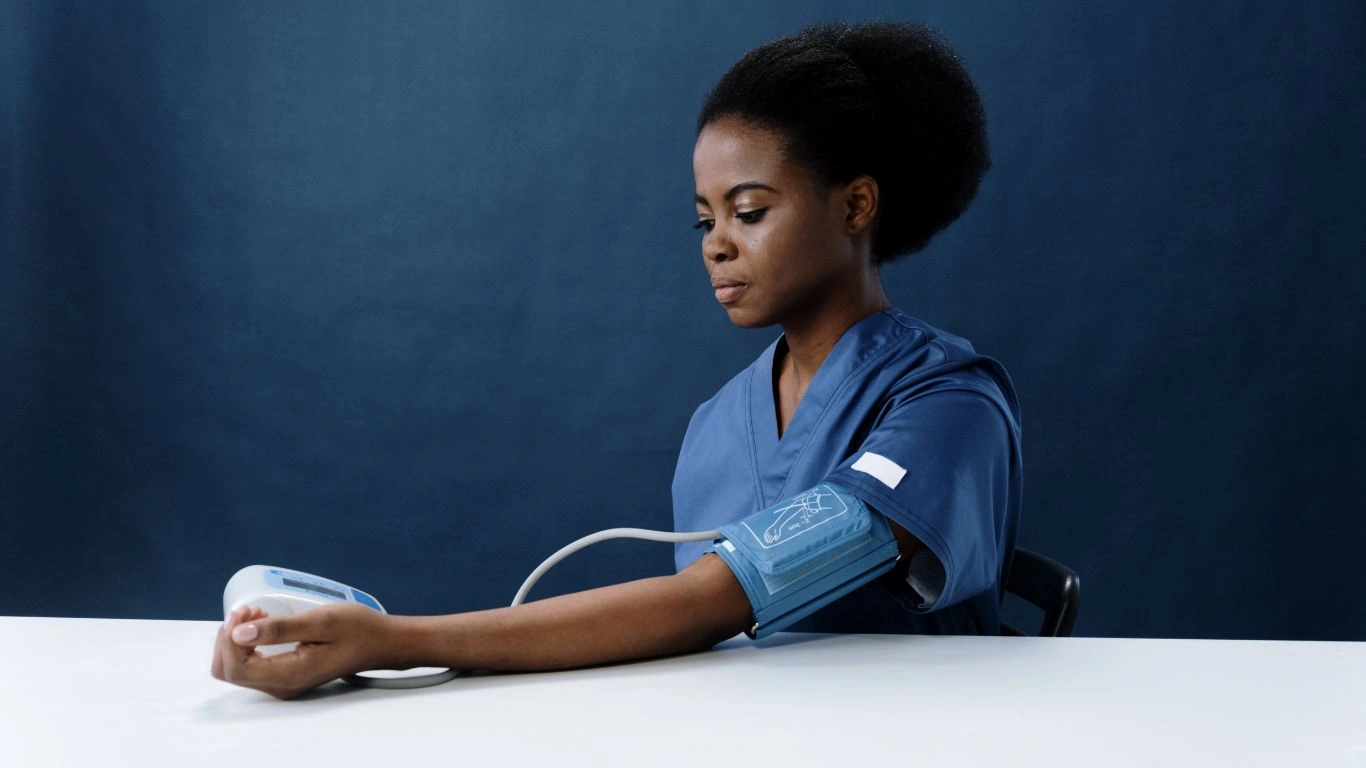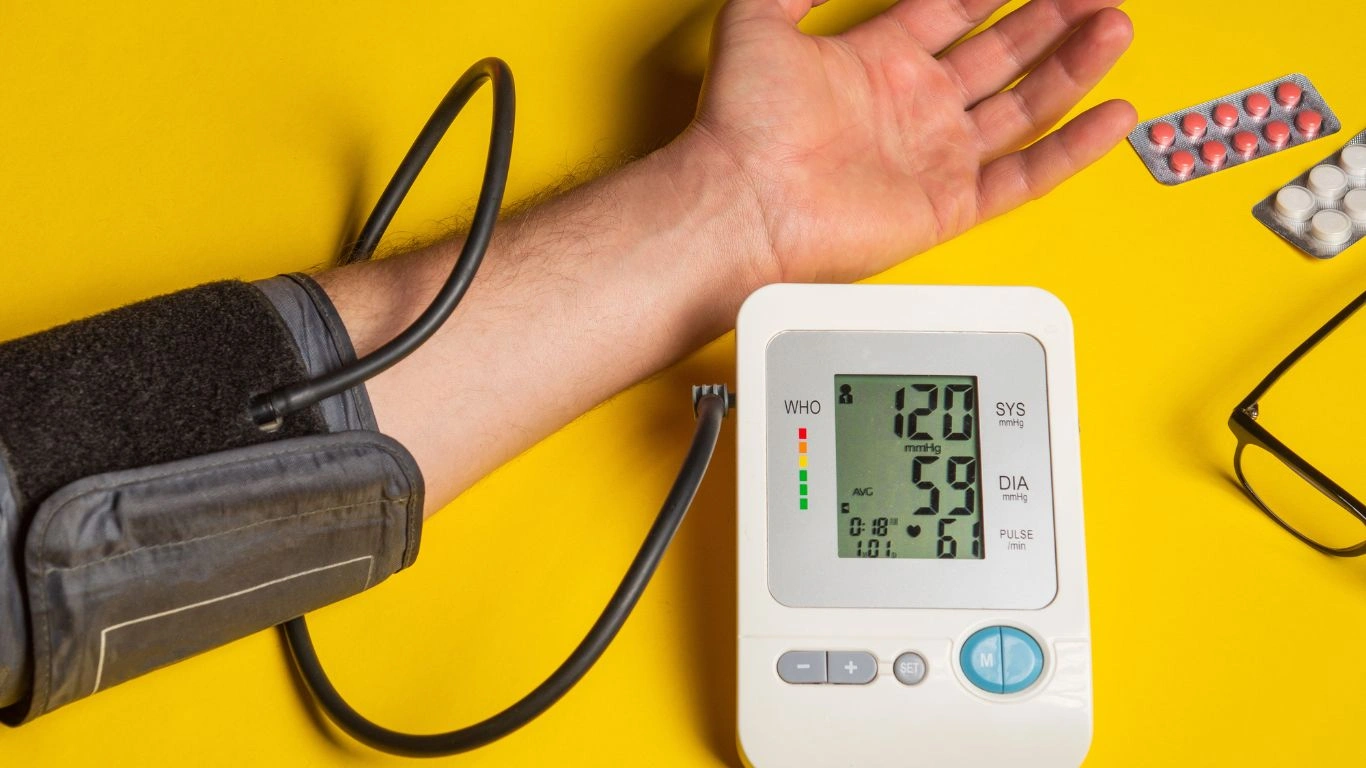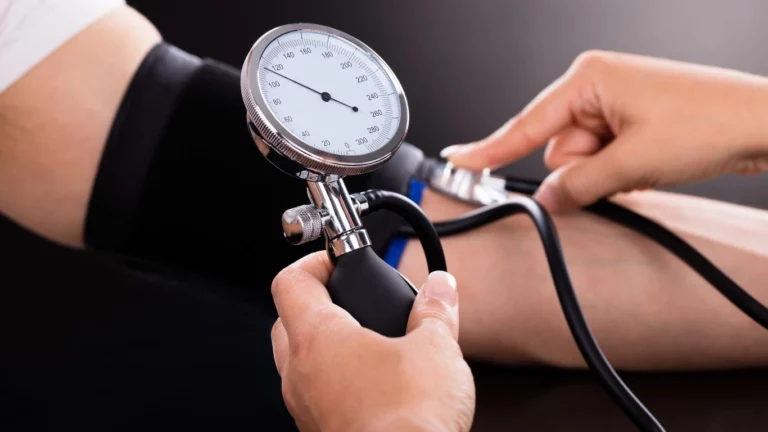High Blood Pressure & Digestion: The Hidden Link You Need to Know!
Ever noticed how your stomach acts up when your blood pressure is out of whack? You’re not imagining things. High blood pressure and digestion issues are more connected than most people realize. I’ve seen it firsthand in my years as a hypertension specialist—patients dealing with bloating, acid reflux, or sluggish digestion, all while struggling to keep their blood pressure in check. If that sounds familiar, you’re in the right place. Let’s break down how these two troublemakers are linked and what you can do about it.
How High Blood Pressure Affects Digestion

When people think of hypertension, they usually picture heart problems, strokes, or kidney damage. But the impact on digestion? That’s an overlooked piece of the puzzle. Your digestive system relies on proper blood flow to function smoothly. When blood pressure is consistently high, it can disrupt circulation, slow down digestion, and even lead to gut inflammation.
Reduced Blood Flow to the Gut
Your digestive organs—stomach, intestines, liver—need a steady supply of oxygen-rich blood to break down food and absorb nutrients. But when blood pressure is high, arteries can become stiff and narrow, limiting circulation to these organs. This can result in:
- Sluggish digestion, leaving you feeling bloated or overly full
- Constipation due to reduced motility in the intestines
- Acid reflux, as stomach function slows and food lingers longer
The Stress Connection: Fight-or-Flight Mode
Here’s something I often tell my patients: your body can’t digest properly when it thinks you’re running from danger. Chronic high blood pressure puts your body in a state of stress, triggering the release of cortisol and adrenaline. These hormones prioritize survival—redirecting blood flow away from digestion to fuel your muscles and brain.
The result? Your stomach slows down, acid levels fluctuate, and food sits longer than it should, leading to discomfort and bloating. If you’ve ever felt like stress wrecks your stomach, that’s exactly what’s happening on a physiological level.
Medications for Hypertension and Their Impact on Digestion

Managing high blood pressure often means taking medications, but these can sometimes create digestive side effects. I always remind my patients to monitor how their body reacts, as certain drugs can trigger:
Calcium Channel Blockers and Constipation
Medications like amlodipine or verapamil work by relaxing blood vessels, making it easier for blood to flow. The downside? They also relax the muscles in your intestines, leading to sluggish bowel movements and constipation.
Beta-Blockers and Slow Digestion
Beta-blockers, such as metoprolol and propranolol, lower blood pressure by reducing heart rate. However, they can also slow digestion and contribute to acid reflux or indigestion.
Diuretics and Dehydration
Diuretics (aka “water pills”) help flush out excess sodium and water, reducing blood pressure. But if you’re not replenishing fluids properly, dehydration can lead to constipation and digestive discomfort.
Tips to Improve Digestion While Managing Blood Pressure

The good news? You don’t have to suffer through these digestive woes. A few tweaks to your daily habits can go a long way in keeping both your blood pressure and gut health in check.
Stay Hydrated (But Watch the Sodium)
Water is crucial for digestion, but if you’re dealing with high blood pressure, you also need to be mindful of sodium intake. Too much salt leads to fluid retention, raising blood pressure and causing bloating. Instead, focus on hydrating with water, herbal teas, and foods rich in potassium (like bananas and leafy greens) to help balance things out.
Increase Fiber Intake
Many of my patients are surprised when I tell them fiber isn’t just for digestion—it’s a game-changer for blood pressure too. High-fiber foods like oats, beans, and vegetables help regulate blood sugar and cholesterol while keeping digestion smooth. Just remember to increase fiber gradually to avoid bloating.
Manage Stress with Relaxation Techniques
Since stress plays a major role in both hypertension and digestive issues, incorporating relaxation techniques can make a huge difference. Try:
- Deep breathing: Slows down heart rate and promotes digestion
- Gentle movement: Walking or yoga can aid gut motility
- Mindful eating: Chewing food slowly helps digestion and prevents overeating
How Gut Health Affects Blood Pressure

So far, we’ve talked about how high blood pressure can mess with digestion. But what about the other way around? Your gut health actually plays a big role in regulating blood pressure, and trust me, this is something most people (including doctors!) tend to overlook.
Inside your digestive system, there’s a whole community of bacteria—your gut microbiome. These little guys help break down food, produce essential nutrients, and even influence inflammation levels in your body. And guess what? The state of your gut microbiome can impact your blood pressure.
Inflammation: The Hidden Culprit
When your gut is out of balance—think too many processed foods, low fiber, or excessive antibiotics—it can lead to chronic inflammation. This, in turn, puts extra stress on your blood vessels, making them stiff and less flexible. Over time, this contributes to higher blood pressure and an increased risk of heart disease.
From what I’ve seen in my practice, patients who suffer from both high blood pressure and digestive problems often have signs of gut-related inflammation—bloating, irregular bowel movements, or even skin issues. It’s all connected.
The Gut-Nitric Oxide Connection
One of the coolest things about gut bacteria is their ability to produce nitric oxide. This compound helps relax and widen blood vessels, keeping blood pressure in check. But if your gut health is poor, nitric oxide levels can drop, making it harder for your blood vessels to function properly.
Probiotics and Prebiotics: A Game Changer
Here’s some good news: improving gut health can actually help lower blood pressure. I’ve seen some of my patients experience noticeable improvements just by incorporating more probiotic and prebiotic-rich foods into their diet.
- Probiotic foods: Yogurt, kefir, sauerkraut, kimchi, miso
- Prebiotic foods: Bananas, onions, garlic, asparagus, oats
- Fermented foods: Help replenish beneficial gut bacteria
And if you’re wondering, “Should I take a probiotic supplement?”—the answer is, it depends. If you’re not getting enough probiotic-rich foods, a high-quality supplement might help. Just make sure it contains well-researched strains like Lactobacillus and Bifidobacterium.
Foods That Support Both Digestion and Blood Pressure

Since food is the foundation of both gut health and heart health, choosing the right foods can make all the difference. I always recommend my patients focus on anti-inflammatory, whole foods that support both digestion and healthy blood pressure.
Leafy Greens: The Ultimate Superfood
Spinach, kale, and Swiss chard are packed with potassium, which helps counteract sodium’s effects and lower blood pressure. Plus, they’re high in fiber, which promotes smooth digestion.
Beets and Beet Juice
Beets are rich in nitrates, which naturally boost nitric oxide production, helping blood vessels relax. Drinking beet juice can actually lower blood pressure within hours, according to some studies!
Ginger and Turmeric
Both of these spices have powerful anti-inflammatory properties and can support digestion by reducing bloating and gas. They also help improve circulation, benefiting blood pressure.
Fatty Fish: Omega-3 Powerhouse
Salmon, mackerel, and sardines are rich in omega-3 fatty acids, which help lower blood pressure and reduce inflammation. They’re also great for gut health, thanks to their anti-inflammatory benefits.
Legumes: Beans, Lentils, and Chickpeas
These fiber-packed foods support digestive health while also helping to lower blood pressure. They provide plant-based protein without the saturated fats found in red meat.
Lifestyle Tips to Keep Your Gut and Blood Pressure Happy

Aside from diet, your daily habits play a huge role in balancing blood pressure and digestion. Here are some simple but effective lifestyle changes I often recommend:
Move More, Sit Less
Physical activity is one of the best natural ways to improve both circulation and digestion. Even a 30-minute walk after meals can help lower blood pressure and keep your gut moving.
Improve Sleep Quality
Did you know poor sleep is linked to both high blood pressure and gut imbalances? Aim for at least 7-8 hours of quality sleep per night. Try reducing screen time before bed, keeping a consistent schedule, and avoiding heavy meals late at night.
Chew Your Food Thoroughly
Rushing through meals can lead to poor digestion, bloating, and even higher stress levels (which impact blood pressure). Slow down, chew your food well, and enjoy each bite.
Try Intermittent Fasting
Some studies suggest intermittent fasting may help regulate blood pressure and improve gut health. If it works for your lifestyle, consider an eating window like 12:12 or 16:8 (fasting for 12-16 hours, then eating in a set period).
Reduce Alcohol and Caffeine
Both alcohol and excessive caffeine can disrupt digestion and spike blood pressure. If you’re sensitive, consider swapping that extra cup of coffee for herbal tea, or limiting alcohol to special occasions.
By making small, consistent changes, you can improve both your digestive health and blood pressure naturally. And remember, it’s not about perfection—it’s about progress!
Case Studies & Real-Life Examples

Over the years, I’ve seen plenty of patients struggle with both high blood pressure and digestive issues. But when they start making targeted changes, the results can be incredible. Let me share a few real-life examples that highlight just how connected these two systems are.
Case #1: The Stressed-Out Executive
One of my patients, a 45-year-old corporate executive, came to me with persistent acid reflux, bloating, and rising blood pressure. His diet consisted of fast food, caffeine overload, and late-night stress eating. Not surprisingly, his gut was inflamed, and his BP readings were in the 150s.
We made a few simple tweaks: cutting down on processed foods, adding fiber and probiotics, and incorporating daily 10-minute meditation. Within three months, his digestion improved dramatically, and his blood pressure dropped to a stable 125/80.
Case #2: The Retired Teacher with Chronic Constipation
A retired teacher in her late 60s had been on blood pressure meds for years. She struggled with constipation, bloating, and occasional dizziness. A closer look at her medications revealed that her calcium channel blocker was slowing down her digestion.
We worked with her doctor to switch medications, increased her fiber intake with leafy greens and lentils, and added gentle exercise like walking. Not only did her constipation improve, but her blood pressure also stabilized at a much healthier level.
Case #3: The Young Athlete Battling Hypertension
A 30-year-old marathon runner was shocked to find his blood pressure creeping up. He had no family history of hypertension and was in peak physical shape. However, his diet was extremely low in fiber, and he relied heavily on protein shakes and energy drinks.
After shifting to a more balanced diet with fermented foods, whole grains, and cutting back on caffeine, his digestion improved, and his blood pressure returned to optimal levels. Turns out, gut health matters even when you’re fit!
Key Takeaways: What You Need to Remember

We’ve covered a lot of ground, so let’s break it down into a few key takeaways:
- High blood pressure and digestion issues are deeply connected. Poor circulation, stress hormones, and medications can all impact gut function.
- Gut health plays a major role in blood pressure regulation. A diverse microbiome helps reduce inflammation and supports vascular health.
- Diet is your best ally. Whole foods, fiber, probiotics, and anti-inflammatory nutrients can make a significant difference.
- Medication side effects are real. If you notice digestive issues after starting BP meds, talk to your doctor about alternatives.
- Simple lifestyle changes go a long way. Hydration, movement, stress management, and mindful eating can improve both digestion and blood pressure.
FAQs
Here are some of the most common questions I get from patients:
Can digestive problems actually cause high blood pressure?
Yes! Chronic gut inflammation, poor microbiome health, and stress-related digestive issues can all contribute to increased blood pressure over time.
Which foods should I avoid for both digestion and blood pressure?
Stay away from processed foods, excessive salt, artificial sweeteners, and heavy fried foods. These not only raise blood pressure but also disrupt gut bacteria and slow digestion.
Are probiotics really helpful for lowering blood pressure?
Research suggests that certain probiotic strains may help lower blood pressure by reducing inflammation and improving gut health. However, whole-food sources like yogurt and kimchi are the best starting points.
Do blood pressure medications always cause digestive problems?
Not always, but certain medications—like calcium channel blockers and beta-blockers—can slow digestion or cause constipation. If you’re experiencing issues, discuss alternatives with your doctor.
Bonus: Additional Resources & DIY Tips
Want to take control of your digestion and blood pressure naturally? Here are a few extra resources and tips:
- Try herbal teas: Peppermint and ginger teas can soothe digestion and help lower stress-related BP spikes.
- Test for food sensitivities: If you suspect certain foods trigger your digestive issues, consider an elimination diet.
- Stay consistent: Making small changes daily leads to long-term success. Don’t expect overnight results, but trust the process!
- Monitor your BP and gut health: Keeping a journal of your symptoms can help you identify patterns and triggers.
Appendix: Table, References, Disclaimer, and Call to Action
Helpful Reference Links:
- American Heart Association – Information on blood pressure management
- PubMed – Research studies on gut health and hypertension
- Mayo Clinic – Medication side effects and digestive concerns
Disclaimer:
This article is for informational purposes only and should not be taken as medical advice. Always consult with a healthcare professional before making changes to your diet, medications, or lifestyle.
Call to Action:
Have you experienced digestive problems alongside high blood pressure? What worked for you? Drop a comment below—I’d love to hear your thoughts! And if you found this article helpful, share it with someone who might benefit.
Looking for a more personalized approach? Reach out to a healthcare professional to discuss tailored strategies for managing blood pressure and gut health.

Dr. Gwenna Aazee is a board-certified Internal Medicine Physician with a special focus on hypertension management, chronic disease prevention, and patient education. With years of experience in both clinical practice and medical writing, she’s passionate about turning evidence-based medicine into accessible, actionable advice. Through her work at Healthusias.com, Dr. Aazee empowers readers to take charge of their health with confidence and clarity. Off the clock, she enjoys deep dives into nutrition research, long walks with her rescue pup, and simplifying medical jargon one article at a time.






